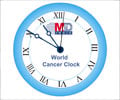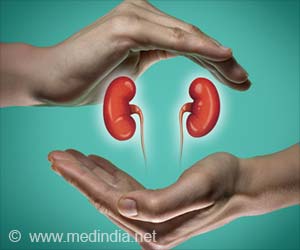The World Cancer Day is celebrated on the 4th of February every year to increase the awareness about cancer and promote research to conquer it.
- The World Cancer Day is celebrated on the 4th of February every year
- The theme for the World Cancer Day for three consecutive years (2016-2018) is: We Can. I Can
- Individuals as well as communities can participate in the fight against cancer
Lung cancer is the most commonly diagnosed cancer followed by breast cancer, colorectal cancer, prostate cancer and stomach cancer. Several cancers appear due to exposure to certain factors which can be easily avoided. These include:
- Smoking: Smoking cigarettes and other forms of tobacco predispose to several forms of cancer. Cigarette smoke contains at least 69 known carcinogens. The association between cigarette smoking and lung cancer is well established. Other cancers that can arise due to cigarette smoking include lung, esophagus, larynx, mouth, throat, kidney, bladder, liver, blood, pancreas, stomach, cervix, colon, and rectum. In addition, smoking causes other lung and heart diseases. Smoking is not a necessity – the habit often arises due to peer pressure, but is not easy to give up due to its addictive property. Therefore, it is best not to start smoking. However, if you are already smoking, contact your health care provider who can counsel you and offer ways and means to stop smoking. Quitting smoking also reduces cancer risk.
- Alcohol Intake: High alcohol intake can increase the risk of cancers of the mouth, throat, food pipe, larynx (voice box), liver and breast. Therefore, people are advised to limit alcohol intake.
- Environmental Factors: Certain environmental substances can increase the risk of cancer. Excessive exposure to sunlight especially by white-skinned individuals can result in skin cancer. You may not smoke, but if your partner or colleague does, you may also be at risk for cancer. Some people are exposed to carcinogens at their place of work like asbestos. Adequate precautions should be adopted by the industries employing staff to work in such environments
- Obesity: Obesity increases the risk of breast cancer in menopausal women, colon, rectum, endometrium (the inner lining of the uterus), esophagus, kidney, pancreas, and gallbladder. Steps to prevent obesity like increasing physical activity and reducing unhealthy diets are beneficial in preventing cancer.
- Cancer-causing Infections: Certain viral infections can cause cancer. For example, infection with the human papillomavirus can predispose to cervical cancer in women. Hepatitis B and C can predispose to liver cancer. Vaccines when available can be used to prevent the infections and therefore prevent the cancer.
If you already suffer from cancer, don’t let the cancer determine the course of your life, make sure that you determine the course of cancer and your life. Get back to work as soon as you can. If your colleague suffers from cancer, provide a support system at your work place so that they can get back to their routine life.
Get involved in the mission against cancer, even if you do not suffer from it or know anyone who suffers from it. Take on to social media to increase others awareness of cancer. You could be a part of a group of people taking measures to provide access to cancer treatment to needy patients. Along with other volunteers, you could visit your local administration and volunteer to increase awareness about cancer in your community.
Remember, cancer can affect anybody. However, the risk can be reduced to a large extent by following a healthy lifestyle with healthy food, enough physical activity, avoiding smoking and limiting alcohol intake.
- Cancer - (http://www.who.int/mediacentre/factsheets/fs297/en/)
- Harms of Cigarette Smoking and Health Benefits of Quitting - (https://www.cancer.gov/about-cancer/causes-prevention/risk/tobacco/cessation-fact-sheet)
Source-Medindia















